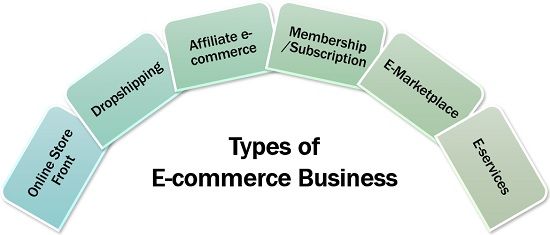Unlocking the Secrets of High-Growth Industries
In today’s fast-paced business landscape, identifying the most successful types of businesses is crucial for entrepreneurs, investors, and industry leaders. Understanding the characteristics that contribute to their success can provide valuable insights for building and sustaining a thriving business. The most successful types of businesses often share common traits, such as adaptability, customer focus, and innovation. By examining these characteristics, businesses can unlock the secrets of high-growth industries and position themselves for long-term success.
High-growth industries are often driven by emerging trends and technologies, which can create new opportunities for businesses to innovate and expand. For instance, the rise of e-commerce and digital payments has enabled businesses to reach a wider audience and increase their revenue streams. Similarly, the growing demand for sustainable and socially responsible products has led to the emergence of new industries and business models.
However, identifying the most successful types of businesses requires a deep understanding of the market, consumer behavior, and industry trends. It involves analyzing data, conducting market research, and staying ahead of the curve. By doing so, businesses can uncover new opportunities, mitigate risks, and make informed decisions that drive growth and success.
In this article, we will explore the most successful types of businesses, highlighting their characteristics, strengths, and weaknesses. We will examine the growth of e-commerce and digital businesses, the rise of service-based industries, and the power of subscription-based models. We will also discuss the importance of sustainability and social responsibility in business, and provide actionable advice for entrepreneurs and business leaders looking to build successful and sustainable businesses.
How to Identify Emerging Trends and Opportunities
Staying ahead of the curve is crucial for businesses to remain competitive and identify emerging trends and opportunities. The most successful types of businesses are often those that can anticipate and adapt to changes in their industry. To achieve this, businesses must conduct thorough market research and analyze consumer behavior to inform their decisions.
Market research involves gathering and analyzing data about the target market, including demographics, preferences, and behaviors. This can be done through surveys, focus groups, and online analytics tools. By understanding the needs and wants of their target market, businesses can identify emerging trends and opportunities to innovate and expand.
Consumer behavior analysis is also essential for identifying emerging trends and opportunities. This involves studying how consumers interact with products and services, including their purchasing habits, preferences, and pain points. By analyzing consumer behavior, businesses can identify areas for improvement and opportunities to create new products and services that meet the evolving needs of their target market.
Some effective ways to identify emerging trends and opportunities include monitoring industry reports and news, attending conferences and trade shows, and engaging with customers and partners. Businesses can also use social media and online analytics tools to track consumer behavior and identify emerging trends.
For example, the rise of social media has created new opportunities for businesses to engage with their target market and build brand awareness. By analyzing consumer behavior on social media, businesses can identify emerging trends and opportunities to create new products and services that meet the evolving needs of their target market.
By staying ahead of the curve and identifying emerging trends and opportunities, businesses can position themselves for long-term success and remain competitive in their industry. The most successful types of businesses are often those that can anticipate and adapt to changes in their industry, and by conducting thorough market research and analyzing consumer behavior, businesses can identify emerging trends and opportunities to innovate and expand.
The Rise of E-commerce and Digital Businesses
The e-commerce and digital business landscape has experienced unprecedented growth in recent years, with the most successful types of businesses in this space achieving remarkable success. Companies like Amazon, Shopify, and Netflix have revolutionized the way we shop, consume media, and interact with each other. But what sets these businesses apart from others, and what can we learn from their success?
One key factor contributing to the success of e-commerce and digital businesses is scalability. These businesses can quickly expand their reach and customer base without being limited by physical constraints. For example, Amazon’s e-commerce platform can handle millions of transactions per day, making it one of the largest and most successful online retailers in the world.
Another important factor is adaptability. E-commerce and digital businesses must be able to quickly respond to changes in consumer behavior, technology, and market trends. Netflix, for instance, has successfully adapted to the shift towards streaming media, offering a vast library of content that can be accessed from anywhere.
Customer engagement is also crucial for the success of e-commerce and digital businesses. These businesses must be able to create a seamless and personalized experience for their customers, using data and analytics to inform their marketing and sales strategies. Shopify, for example, offers a range of tools and services that enable businesses to create engaging and effective online stores.
The success of e-commerce and digital businesses has also led to the creation of new business models and opportunities. For instance, the rise of social media has enabled businesses to reach and engage with their customers in new and innovative ways. Influencer marketing, for example, has become a major channel for businesses to promote their products and services.
Overall, the most successful types of businesses in the e-commerce and digital space share common characteristics such as scalability, adaptability, and customer engagement. By understanding these factors and incorporating them into their business strategies, entrepreneurs and business leaders can build successful and sustainable businesses that thrive in the digital age.
Service-Based Businesses: Meeting the Needs of a Growing Market
The demand for service-based businesses is on the rise, driven by the growing need for expertise, convenience, and personalized experiences. The most successful types of businesses in this space are those that can deliver high-quality services, build strong customer relationships, and adapt to changing market conditions.
Healthcare, education, and consulting are just a few examples of service-based industries that are experiencing significant growth. These businesses require a deep understanding of their customers’ needs, as well as the ability to deliver tailored solutions that meet those needs. Successful service-based businesses are those that can build trust with their customers, provide exceptional service, and continuously improve their offerings.
Expertise is a critical factor in the success of service-based businesses. Customers are looking for professionals who have the knowledge, skills, and experience to deliver high-quality services. Businesses that can demonstrate their expertise through certifications, credentials, and customer testimonials are more likely to attract and retain customers.
Customer relationships are also essential for service-based businesses. Building strong relationships with customers requires a deep understanding of their needs, preferences, and pain points. Successful service-based businesses are those that can deliver personalized experiences, provide exceptional customer service, and continuously gather feedback to improve their offerings.
Adaptability is another key factor in the success of service-based businesses. These businesses must be able to adapt to changing market conditions, customer needs, and technological advancements. Successful service-based businesses are those that can pivot quickly, innovate continuously, and stay ahead of the competition.
Examples of successful service-based businesses include companies like Accenture, Deloitte, and Ernst & Young. These businesses have built strong reputations for delivering high-quality services, building strong customer relationships, and adapting to changing market conditions.
By understanding the characteristics of successful service-based businesses, entrepreneurs and business leaders can build successful and sustainable businesses that meet the needs of a growing market. The most successful types of businesses in this space are those that can deliver high-quality services, build strong customer relationships, and adapt to changing market conditions.
The Power of Subscription-Based Models
Subscription-based models have become increasingly popular in recent years, with companies like Spotify, Apple Music, and Dollar Shave Club achieving significant success. These businesses have tapped into the growing demand for convenience, flexibility, and personalized experiences, offering customers a range of benefits that traditional business models cannot match.
One of the key benefits of subscription-based models is the recurring revenue stream they provide. By offering customers a regular subscription service, businesses can generate a steady stream of income, reducing the need for costly marketing and advertising campaigns. This predictable revenue stream also enables businesses to better plan and budget for the future, making it easier to invest in growth and innovation.
Customer retention is another critical factor in the success of subscription-based models. By offering customers a personalized experience and a range of benefits, businesses can build strong relationships and encourage loyalty. This not only reduces churn rates but also increases the potential for positive word-of-mouth and online reviews, driving growth and attracting new customers.
The most successful types of businesses using subscription-based models are those that can offer a unique value proposition, personalized experience, and flexible pricing options. For example, Spotify’s subscription service offers customers access to a vast library of music, personalized playlists, and discovery features, making it a compelling alternative to traditional music purchasing models.
Apple Music’s subscription service, on the other hand, offers customers access to exclusive content, personalized recommendations, and a vast library of music, making it a popular choice for music fans. Dollar Shave Club’s subscription service, meanwhile, offers customers a convenient and affordable way to purchase razors and other grooming products, with a range of flexible pricing options and personalized recommendations.
By understanding the benefits and characteristics of subscription-based models, entrepreneurs and business leaders can build successful and sustainable businesses that meet the needs of a changing market. The most successful types of businesses using subscription-based models are those that can offer a unique value proposition, personalized experience, and flexible pricing options, driving growth and customer loyalty.
Food and Beverage Businesses: Tapping into the Growing Demand for Experiential Dining
The food and beverage industry has experienced significant growth in recent years, driven by the increasing demand for experiential dining. The most successful types of businesses in this space are those that can create memorable experiences, build brand loyalty, and offer high-quality products and services.
Starbucks is a prime example of a successful food and beverage business that has tapped into the growing demand for experiential dining. By offering a unique and personalized experience, Starbucks has built a loyal customer base and established itself as a leader in the industry. The company’s focus on sustainability, social responsibility, and customer engagement has also contributed to its success.
Blue Bottle Coffee is another successful food and beverage business that has created a memorable experience for its customers. By offering high-quality coffee and a unique atmosphere, Blue Bottle Coffee has built a loyal following and established itself as a leader in the specialty coffee market.
Meal kit delivery services, such as Blue Apron and HelloFresh, have also experienced significant growth in recent years. These services offer customers a convenient and flexible way to prepare healthy and delicious meals at home, and have tapped into the growing demand for experiential dining.
The key to success in the food and beverage industry is creating a memorable experience for customers. This can be achieved through a combination of high-quality products and services, unique atmospheres, and personalized engagement. By focusing on these elements, businesses can build brand loyalty, drive growth, and establish themselves as leaders in the industry.
The most successful types of businesses in the food and beverage industry are those that can adapt to changing consumer preferences and trends. By staying ahead of the curve and offering innovative products and services, businesses can stay competitive and drive growth.
By understanding the characteristics of successful food and beverage businesses, entrepreneurs and business leaders can build successful and sustainable businesses that meet the needs of a changing market. The most successful types of businesses in this space are those that can create memorable experiences, build brand loyalty, and offer high-quality products and services.
Sustainable and Socially Responsible Businesses: Meeting the Needs of a Changing World
The business world is undergoing a significant shift, with consumers increasingly demanding that companies prioritize sustainability and social responsibility. The most successful types of businesses are those that can adapt to this changing landscape, adopting environmentally friendly practices and promoting social causes.
Patagonia is a prime example of a successful business that has prioritized sustainability and social responsibility. By using environmentally-friendly materials, reducing waste, and promoting fair labor practices, Patagonia has built a loyal customer base and established itself as a leader in the outdoor apparel industry.
REI is another successful business that has prioritized sustainability and social responsibility. By promoting environmental stewardship, reducing waste, and promoting fair labor practices, REI has built a loyal customer base and established itself as a leader in the outdoor industry.
Warby Parker is a successful business that has prioritized social responsibility, particularly in the area of eye care. By providing affordable eye care and glasses to those in need, Warby Parker has built a loyal customer base and established itself as a leader in the eyewear industry.
The benefits of adopting environmentally friendly practices and promoting social causes are numerous. Not only can it help to build a loyal customer base and establish a company as a leader in its industry, but it can also help to reduce costs, improve brand reputation, and increase employee engagement.
However, adopting sustainable and socially responsible practices can also present challenges. It can require significant investments of time and resources, and can be difficult to measure the impact of these efforts. Despite these challenges, the most successful types of businesses are those that can prioritize sustainability and social responsibility, and adapt to the changing needs of their customers and the environment.
By understanding the importance of sustainability and social responsibility, entrepreneurs and business leaders can build successful and sustainable businesses that meet the needs of a changing world. The most successful types of businesses are those that can adapt to this changing landscape, adopting environmentally friendly practices and promoting social causes.
Key Takeaways: Lessons from the Most Successful Types of Businesses
Throughout this article, we have explored the most successful types of businesses across various industries, including e-commerce, service-based, subscription-based, food and beverage, and sustainable and socially responsible businesses. By analyzing the characteristics of these businesses, we can identify common traits that contribute to their success.
One of the most important takeaways is the importance of adaptability. The most successful types of businesses are those that can adapt quickly to changing market conditions, consumer preferences, and technological advancements. This requires a willingness to innovate, experiment, and take calculated risks.
Another key takeaway is the importance of customer focus. The most successful types of businesses are those that prioritize customer needs, preferences, and experiences. This requires a deep understanding of customer behavior, preferences, and pain points, as well as a commitment to delivering exceptional customer service.
Innovation is also a critical factor in the success of the most successful types of businesses. These businesses are constantly looking for new ways to improve their products, services, and processes, and are willing to invest in research and development to stay ahead of the competition.
Finally, the most successful types of businesses are those that prioritize sustainability and social responsibility. These businesses recognize the importance of minimizing their environmental impact, promoting social causes, and contributing to the well-being of their communities.
By incorporating these traits into their business models, entrepreneurs and business leaders can build successful and sustainable businesses that meet the needs of a changing world. The most successful types of businesses are those that can adapt, innovate, and prioritize customer needs, while also promoting sustainability and social responsibility.
By following these key takeaways, businesses can position themselves for long-term success and become leaders in their industries. The most successful types of businesses are those that can balance profitability with social responsibility, and prioritize customer needs while driving innovation and growth.






